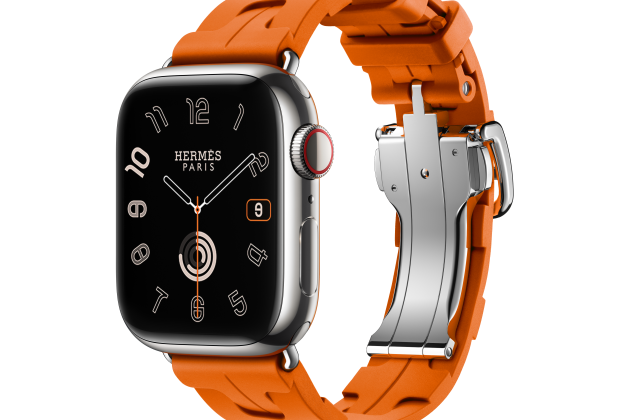Is It the End of the Apple Watch S9, Ultra 2?

Apple yanked its latest smartwatches off the digital shelves on Thursday, ending online sales of its Apple Watch Series 9 and Ultra 2 after the U.S. International Trade Commission found the devices violated patents held by medical technology company Masimo.
Although the October ruling revolved around blood oxygen monitoring, a feature that the wearables line has offered for three years, the decision doesn’t affect previously purchased units or the Apple Watch SE, which lacks this functionality.
More from WWD
Physical Apple Stores will end brick-and-mortar sales of the Series 9 and Ultra 2, as well as in-store pick-ups of online orders, at the end of the day on Dec. 24. The cut-off applies to Apple’s direct-to-consumer business in the U.S., but other stores, such as Best Buy or Walmart, can still carry the watches. So can Apple e-commerce and retail operations in other regions, according to the company. That’s understandable, given the commission’s purview is in the U.S.
What’s surprising is the timing, days before Apple would actually be required to end sales.
The ITC ordered the tech giant to stop importing or directly selling any watches that run afoul of Masimo’s patent, but the mandates won’t take effect until the presidential review period ends on Dec. 25. This means that the company is voluntarily ending e-commerce sales early, right before Christmas.
Apple declined a request for comment, but a previous statement explained that it “is preemptively taking steps to comply should the ruling stand…. Apple strongly disagrees with the order and is pursuing a range of legal and technical options to ensure that Apple Watch is available to customers.” That includes looking into ways to bring the devices back “as soon as possible,” even if the White House doesn’t reverse the decision.
What that might entail is anyone’s guess. The most obvious and straightforward option is to re-design the watches without the blood oxygen feature. Until then, Apple will have to nix sales for any watches after the Series 6, apart from the SE. At that point, even stock from third-party retailers will likely begin drying up, because they won’t be able to place any new orders — at least on Apple’s home turf. Anyone hoping to buy a banned device, whether one of the new Hermés or Nike editions or a classic version, will need to make other arrangements outside the country.
The scenario could seriously undercut Apple’s standing as the leading brand in the wearables market. According to IDC research, it currently claims more than 20 percent of the market, at 29.9 million shipments in the third quarter of 2023. Research director Ramon Llamas sees an increase in activity from smaller brands and “emerging vendors,” particularly those offering budget-conscious alternatives to first-time users, but Apple is still the single dominant brand in wearables.
If Apple Watch shipments fall, it’s hard to predict what that will do to the broader smartwatch industry or the wearables market as a whole.
Best of WWD

